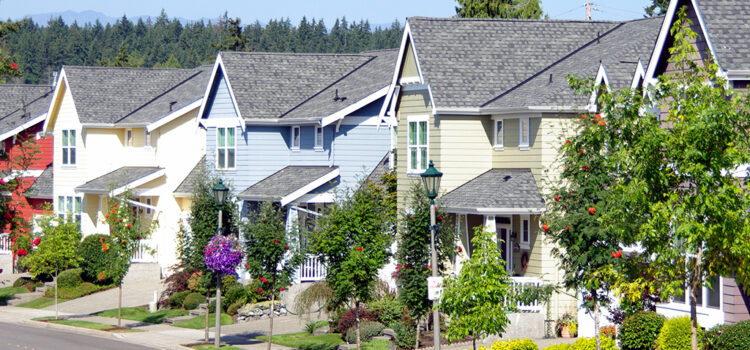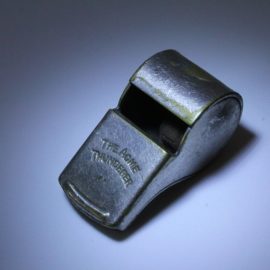
This is a free excerpt from one of Shortform’s Articles. We give you all the important information you need to know about current events and more.
Don't miss out on the whole story. Sign up for a free trial here .
Why do Black homeowners face discrimination in appraisals? Have you or someone you know experienced bias in the home appraisal process?
Black Americans regularly receive lower home valuations and suffer a host of economic, social, and educational consequences as a result. To address the discrimination that Black homeowners face in home valuations, the first step is diversifying the appraisal industry, which is 97 percent white.
Read on to learn more about why Black homeowners face discrimination in home appraisals in the U.S.
Black Homeowners & Discrimination
The roots of racial bias in home appraisals are deep and long, tracing back to the legacy of slavery, Jim Crow segregation, and federal government housing policies that targeted and prevented Black Americans from benefiting from programs that advantaged white Americans. In this article, we’ll explore the history of Black homeowners facing discrimination in appraisals and some of the proposed solutions to rectify the problem.
In the summer of 2021, Black homeowners and Johns Hopkins University professors, Nathan Connolly and Shani Mott, sought an appraisal of their Baltimore home, purchased four years earlier for $450,000. With home prices skyrocketing nationwide and a recent $40,000 investment in home renovations, the couple expected their home valuation to increase considerably. Instead, the appraisal company returned with a valuation of just $472,000—and their mortgage lender subsequently denied them a refinance loan.
Suspecting racial bias, the couple “whitewashed” their home, removing all evidence that a Black family lived there—family photos, children’s drawings of people with dark skin, literature by Black authors—and had a white, male colleague stand in for them at a second appraisal. The new valuation: $750,000.
What Are the Consequences?
Black homeowners facing racial discrimination in U.S. home appraisals has been a deep-rooted, systemic problem with significant, negative economic, social, and educational implications for Black Americans. Among other things this bias:
- Contributes to entrenched inequality, locking generations of Black Americans into segregated neighborhoods with limited resources and decreasing their ability to procure homes and loans and provide their children with better opportunities.
- Fuels the racial wealth gap.
- Experts say homes in predominantly Black neighborhoods are generally valued at $48,000 less than those in majority white neighborhoods, and that the ongoing devaluation of homes in majority Black neighborhoods amounts to $156 billion in lost equity.
- Weakens neighborhood health by lowering property taxes, which decreases revenue for public schools, and lowering equity, which curbs homeowners’ ability to borrow capital to fund new businesses and reinvest in their communities.
The Problem Is Widespread and Longstanding
In 2022, researchers examined 47 million appraisal reports, released publicly for the first time by the Biden administration. They identified a systemic, nationwide practice in the appraisal industry of awarding higher valuations to white-owned homes than homes owned by people of color, and found that white homeowners’ valuations increased at twice the rate of their counterparts of color. Their review of data on comparable homes, neighborhoods, amenities (grocery stores, banks, post offices, parks), and residents of the same socioeconomic status revealed that the only distinguishing factor between communities was racial composition.
Experts say Black homeowners facing discrimination in appraisals is rooted in a long, deep history, tracing back to the legacy of slavery, Jim Crow segregation, and federal housing policies that made it nearly impossible for Black citizens to reap the economic, social capital, and educational benefits that come with homeownership in select American neighborhoods.
- In 1933, in response to a housing shortage, the U.S. government introduced a New Deal program that provided housing in new suburban communities to white, middle- and lower-class families only, and pushed Black and other Americans of color into urban housing projects.
- A year later, the government’s newly established Federal Housing Authority (FHA) birthed “redlining,” refusing to insure mortgages in and around African American neighborhoods, while also subsidizing mass-production of white-only subdivisions.
Looking Ahead
NYT: The Appraisal Foundation, which sets national standards for real estate valuation, declined to comment on researchers’ 2022 findings of the systemic racial discrimination that Black homeowners face. But policy makers offer a host of recommendations to remediate the problem, including:
- Increase diversity in the appraisal profession
- Create a system of checks and balances by spreading appraisal responsibility across several parties to prevent a single, potentially biased viewpoint from determining valuations
- Employ technology utilizing digital home data to conduct valuations, to reduce the risk of human bias in the process.
In the meantime, Housing and Urban Development Secretary Marcia Fudge recently announced a new process enabling people seeking FHA financing to review their appraisal if they believe their home was improperly assessed. And experts recommend that Black homeowners facing discrimination continue to report it, share their stories, and keep an eye out for red flags in the appraisal process.

Want to fast-track your learning? With Shortform, you’ll gain insights you won't find anywhere else .
Here's what you’ll get when you sign up for Shortform :
- Complicated ideas explained in simple and concise ways
- Smart analysis that connects what you’re reading to other key concepts
- Writing with zero fluff because we know how important your time is






